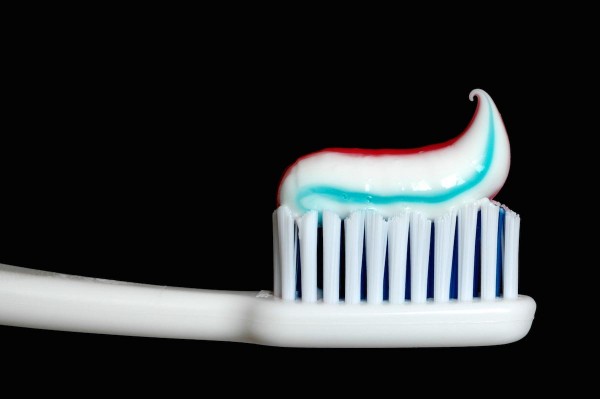After most dental office visits, your technician hands you a little gift bag as you leave. It’s replete with a miniature floss, a shiny new toothbrush and, most likely, a mini-size tube of Colgate toothpaste. Colgate Palmolive is the conglomerate behind this popular brand. They boast 38,000 employees globally and market a basket of oral and personal care products, soaps and dog food, among others. The website touts their core values – “to act with compassion, integrity, honesty and high ethics in all situations, to listen with respect to others and to value differences” – but it doesn’t mention anything about the cancer-causing chemical triclosan, which has been discovered in their toothpaste.
Holistic Living Tips shares the details:
“The journal Chemical Research in Toxicology [released a study which] found that the chemical encourages cancer-cell growth. Various studies over the past few years have clearly outlined the health dangers associated with this chemical.
“Triclosan can also pass through the skin and interfere with hormone function (endocrine disruption). It doesn’t stop there, a study published in the journal Environmental Health Perspectives from 2008 shows how scientists detected triclosan in the urine of nearly 75 percent of those tested (2,517 people age six or older).
“Triclosan is a common component of laundry detergents, deodorants, hand sanitizers and antiseptics, among several other common products.
“The magazine Chemical Research in Toxicology published another study which explained that this chemical can cause cancer if used in high amounts. This harmful ingredient penetrates through our skin and enters in the blood causing a hormone imbalance.”
The chemical showed up in the U.S. market in 1972. There has been a coordinated pushback with some success, according to Beyond Pesticides:
“Triclosan has been banned from consumer personal care cleaning products in the state of Minnesota… Multinational manufacturer Procter and Gamble (P&G) [eliminated] the harmful antibacterial chemical triclosan from its products [as of] 2014… [and] the Canadian government declared triclosan toxic to the environment…”
It’s no longer surprising that the brands we’ve trusted for decades are suspect, even though philanthropic programs abound, according to Colgate:
“Colgate Bright Smiles, Bright Futures® currently offers nine state-of-the art, mobile dental vans that are equipped to screen more than 10 million children each year for common oral health conditions. These dental vans are based in hub-cities and travel to under-served rural and urban communities in the United States to help raise awareness about the importance of children’s dental health.”
It’s wonderful that the little ones who eat too much sugar are getting help with their cavities. But are they getting mercury fillings along with a cancer causing agent in the tube of toothpaste? How can that be philanthropic?
Fortunately, we still have option for our oral health needs. In the toothpaste we use, the food we eat and the holistic dentistry practices that we can choose.
Sources:


